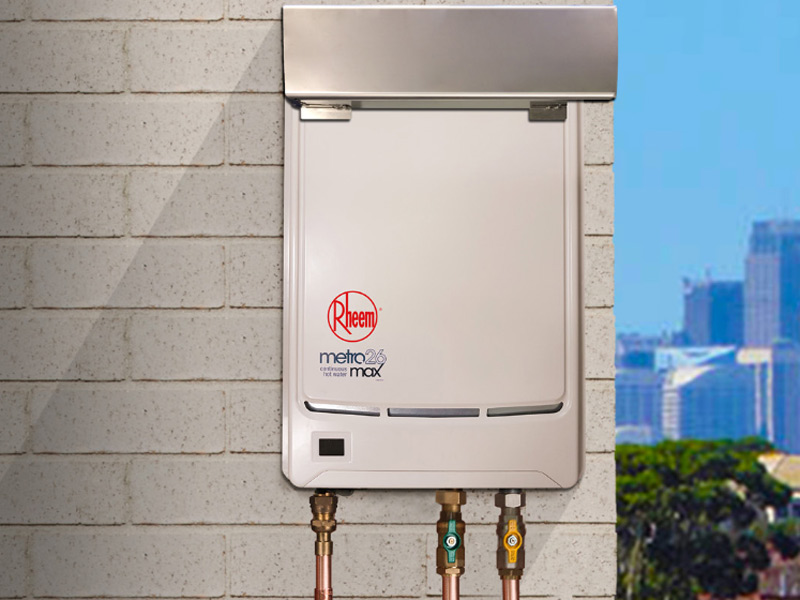do hot water heaters need electricity
FAQs about Gas Water Heaters and Electricity
Question 1: Do instantaneous gas hot water systems need electricity to work?

Instantaneous gas hot water systems do not require electricity to operate. These systems work by heating water as it passes through a gas burner, providing an endless supply of hot water without the need for a storage tank. The gas burner ignites electronically when hot water is required, eliminating the need for electricity.
Question 2: Does a gas water heater need electricity?

A gas water heater does require electricity for certain components, such as the ignition system, control panel, and thermostat. These electrical components ensure safe and efficient operation of the gas water heater. However, even if there's a power outage, most gas water heaters can still provide hot water since they often have a pilot light that doesn't rely on electricity.
Question 3: How does an instantaneous gas hot water system work?
An instantaneous gas hot water system heats water as it flows through the unit. Here's how it works:
- Cold water enters the system through a dedicated cold water pipe.
- The gas burner ignites when hot water is required.
- The burner heats a heat exchanger, which transfers the heat to the flowing water.
- The heated water then exits the hot water outlet pipe.
This setup ensures that hot water is available on demand and eliminates the need for a storage tank.
Question 4: Are there any advantages of using a gas water heater?
Using a gas water heater offers several advantages, including:
- Lower energy costs compared to electric water heaters.
- Faster recovery time for hot water, allowing multiple users to have hot water simultaneously.
- Reliable operation even during power outages.
- Longevity, as gas water heaters often have a longer lifespan than electric ones.
Question 5: What are the main components of a gas water heater?
A gas water heater consists of several key components, including:
- Gas burner: The burner produces the heat to warm the water.
- Heat exchanger: This transfers the heat from the burner to the water.
- Thermostat: The thermostat controls the temperature of the water.
- Gas valve: The gas valve regulates the flow of gas to the burner.
- Ignition system: This ignites the gas burner when hot water is needed.
- Flue pipe: The flue pipe exhausts the combustion gases outside.
Question 6: How much electricity does a gas water heater consume?
The electricity consumption of a gas water heater typically depends on the type and model. On average, gas water heaters consume around 450-750 watts per hour. However, this consumption may vary based on factors such as the efficiency of the unit and the usage patterns.
Question 7: Can I use a gas water heater if I don't have gas supply at home?
No, a gas water heater requires a natural gas or propane supply to operate. If you don't have a gas supply at home, you may need to consider alternative water heating options, such as electric water heaters or solar water heating systems.
Question 8: Are gas water heaters more cost-effective than electric ones?
Gas water heaters are generally more cost-effective than electric water heaters. Gas is often cheaper than electricity, resulting in lower energy costs for heating water. Additionally, gas water heaters typically have higher recovery rates, allowing them to provide hot water more quickly and efficiently.
Question 9: Can I install a gas water heater on my own?
It is recommended to hire a professional plumber or gas fitter to install a gas water heater. Gas installation requires expertise to ensure proper connections, venting, and safety measures are in place. Improper installation can lead to gas leaks, fire hazards, or inefficient operation.
Question 10: Are gas water heaters environmentally friendly?
Gas water heaters can be more environmentally friendly compared to electric ones, depending on the energy source used for electricity generation in your area. Natural gas produces fewer greenhouse gas emissions compared to coal or oil-fired power plants, which are often involved in electricity generation.
Question 11: How often should I perform maintenance on my gas water heater?
Maintenance requirements for gas water heaters vary depending on the manufacturer's recommendations. However, it is generally recommended to have a professional inspect and service your gas water heater annually to ensure safe and efficient operation. Regular maintenance can help prevent issues and extend the lifespan of the unit.
Question 12: Can I switch from an electric water heater to a gas water heater?
Switching from an electric water heater to a gas water heater is possible, but it may require modifications to your plumbing and gas supply system. It is best to consult with a professional plumber or gas fitter to assess the feasibility of the switch and ensure compliance with local building codes and regulations.
Overall, understanding how gas water heaters work and their relationship with electricity can help homeowners make informed decisions about their water heating needs. Consultation with professionals and regular maintenance can ensure optimal performance, energy efficiency, and safety.